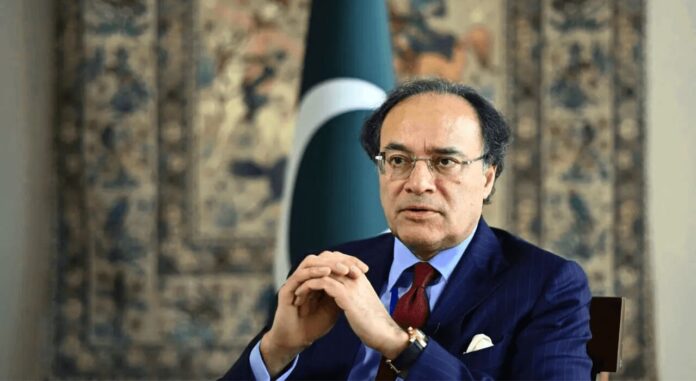ISLAMABAD: Finance and Revenue Minister Muhammad Aurangzeb on Tuesday chaired a high-level meeting to review progress on outcome-based funding initiatives recommended by the committee on Social Impact Finance, a group formed by the Prime Minister to advance inclusive financial solutions.
The meeting included representatives from commercial banks, development finance institutions, regulators, and investment experts who form the Ministry of Finance-led Task Force.
It followed a two-day impact financing workshop organized by the Finance Ministry with Karandaaz Pakistan and the Pakistan Banks Association, under the theme “From Value to Vision: Financing with Purpose from Pakistan’s Financial Sector.”
Topics at the workshop included strategic intent in financing, impact governance, portfolio-level impact design, and outcome verification. Participants worked through case studies and exercises to explore ways to embed impact into financial decision-making.
The Task Force presented recommendations centered on the Social Impact Financing (SIF) framework, developed in collaboration with stakeholders from health, skills, and poverty alleviation sectors.
The framework outlines six priority pillars and aims to mobilize private capital for outcome-based public good initiatives. Outcome-Based Financing (OBF) links disbursements to independently validated results, shifting away from input-based funding.
Task Force members said OBF could improve accountability and transparency in development financing while attracting private and philanthropic investment. They showcased five prototype projects: poverty graduation for ultra-poor female-led households, agronomic support for farmers, financial inclusion via agri-warehousing, healthcare-focused impact finance, and employment-linked education and skills training.
The SIF Framework aligns with the Sustainable Development Goals and proposes tools such as de-risking mechanisms and financial instruments to attract private sector engagement.
Aurangzeb welcomed the Task Force’s efforts and said private capital would be vital for Pakistan’s economic transition. He highlighted the link between healthcare and human development and called for better alignment between workforce training and market needs.
The meeting ended with a decision to present the Task Force’s proposals to the Prime Minister for further policy integration and pilot implementation of selected OBF models.























